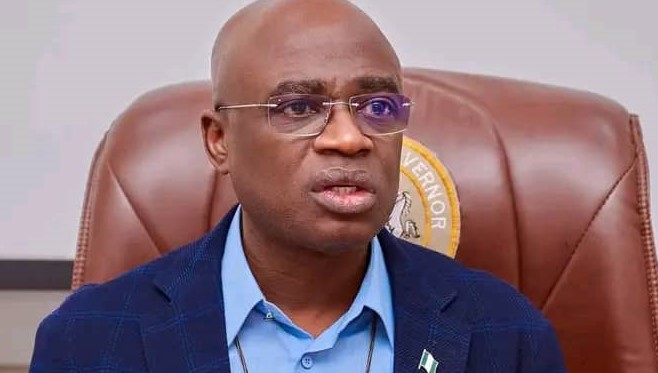By Amos Aar
THE WAVE of killings in Benue State continues unabated, despite a recent warning by United States President, Donald Trump, who threatened possible military intervention in Nigeria if attacks on Christian communities persist.
In Anwule Village, Oglewu District of Ohimini LGA, at least four persons were confirmed dead, while several others remain missing following two consecutive days of attacks by suspected armed herders.
According to residents, the assailants struck on Monday and returned the next day, targeting farmers working on their fields. “They killed two men on Monday and another two on Tuesday afternoon. People are still missing. Around 5pm today they came again into the village. We’re living in fear,” a source told National Record on Wednesday.
The Chairman of Ohimini LGA, Gabriel Adole, confirmed the attack, saying the incident had been reported to the state government and security agencies. “Four people were killed between Monday and Tuesday by armed herders. The government has already deployed security personnel to the area,” he said.
When contacted for confirmation, the Police Public Relations Officer (DPO), Deputy Superintendent of Police (DSP) Udeme Edet, did not respond to calls or messages. However, eyewitnesses told reporters that the attackers wielded knives and firearms as they moved across the farmlands with impunity, leaving trails of destruction.
One resident lamented that the attacks had destroyed months of hard work. “They want to destroy all our harvests after we toiled to plant our crops — only for them to drive their cattle over our farms and drive us away,” he said.
The violence in Ohimini is part of a larger pattern of attacks that have spread across Benue in recent weeks.
Last weekend, a former councillor, Mr. Atindiga Tsebee, was killed in an ambush along the Ayilamo–Anyiin road near Tsukwa Village in the Tombu area of Logo LGA. He was returning from a security meeting convened to address the rising insecurity in the area when he was attacked by suspected herders.
Similar reports from the Guma and Gwer West axis indicate that more communities have come under siege.
Data compiled by rights organisations show that deaths linked to herder–farmer and communal clashes in Benue have increased to over 550 this year alone, indicating a worsening trend despite repeated government assurances.
The crisis has once again drawn global attention following Trump’s recent warning that the U.S. “will not stand idly by” while Christian farmers in Nigeria are “slaughtered in their homeland.” He hinted at possible air strikes or troop deployment if the situation did not improve.
But Nigeria’s federal government has rejected Trump’s remarks, insisting that the violence affects citizens of all faiths and that the country will not tolerate external interference in its domestic affairs.
The Information Minister emphasised that “there is no systematic campaign against any religion,” while urging the international community to support peace efforts rather than escalate tensions.
Analysts, however, argue that the conflict in Benue is rooted in competition over land, water and grazing routes, with herders claiming that traditional grazing paths have been encroached upon, while farmers accuse them of destroying crops and seizing farmlands. The situation, they say, is being worsened by the absence of effective law enforcement and the lack of accountability for past attacks.
For residents like those in Anwule and Tombu, the politics surrounding the crisis offers little comfort. Many have fled their homes to seek refuge in neighbouring communities, abandoning their farms and livelihoods.
The displacement adds to Benue’s growing population of internally displaced persons, many of whom are still struggling to rebuild their lives from previous attacks.
As dusk falls over the farmlands of Benue, fear now governs even the simplest acts of daily life. Farmers wake up unsure if they will return home alive. With the killings continuing despite international attention and government promises, locals are pleading for concrete action rather than words.
“The world may be watching,” a community elder in Logo who preferred anonymity said, “but until security truly returns, every new day is another chance for death.”
The renewed bloodshed shows a grim reality, that even global outrage has yet to slow the march of violence in Nigeria’s heartland.


